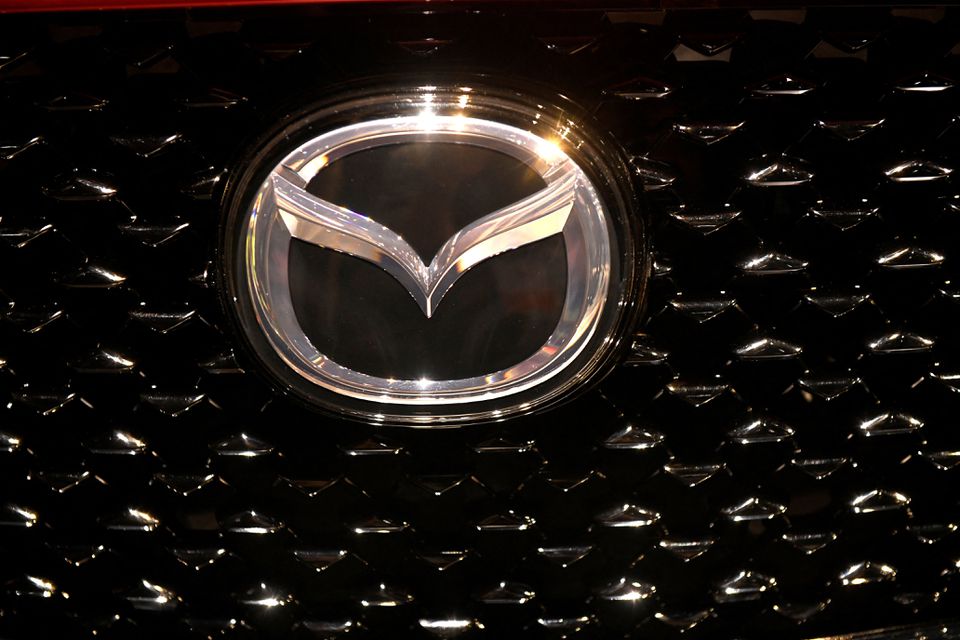
The logo of Mazda is pictured at the LA Auto Show in Los Angeles, California, U.S., November 20, 2019. REUTERS/Andrew Cullen
The company also raised its sales target for electric vehicles (EVs) to up to 40% of its total global sales by 2030, as automakers worldwide spend billions of dollars to ramp up battery and EV production in the face of tougher environmental regulations.
The investment plan by Mazda follows similar announcements this year by domestic rivals such as Toyota and Honda, which have been criticised by environmentalists and green activist investors for being slow in electrification.
"We will promote the full-fledged launch of battery EVs and consider investing in battery production. We estimate Mazda's EV ratio in global sales to rise to a range between 25% and 40% as of 2030," Mazda said in a statement.
Its previous EV sales target was 25% by 2030.
The new forecast was in line with a broader industry trend, with consulting firm Deloitte expecting EV sales to make up about 32% of total new car sales globally by 2030.
As part of a three-phase plan, Mazda said it would introduce battery-EV models in the "latter half of phase 2" which it identified as the period between 2025 and 2027. It planned a full-scale launch of fully electric vehicles between 2028 and 2030, the company said.
Senior managing executive officer Akira Koga told reporters the 1.5 trillion yen ($10.6 billion) investment would be made along with its partners and would be used for research and development. The news was first reported by the Nikkei business daily.
Koga declined to give a detailed investment timeline, adding it would depend on how fast EVs became popular.
Still, Mazda CEO Akira Marumoto said the company will seek to introduce a new hybrid system and improve efficiency on internal combustion engine.
"We believe that a multi-solution approach will be effective," he said.
The automaker said it had agreed to work with seven companies, including electric-component maker Rohm Co, to jointly develop and produce electric drive units.
Company executives also said Mazda had reached a supply agreement with battery maker Envision AESC for a limited period between 2025 and 2027.
"Beyond that, we would like to develop a strategy on procurement and securing (batteries) step by step," said Koga.
Envision AESC chief executive Shoichi Matsumoto told Reuters last month his company was in talks with automakers in Japan, Europe, the United States and China for new supply deals.
Mazda is aiming for about 4.5 trillion yen in net sales for the business year ending March 2026, a jump of about 45% from the financial year ending March 2022, the company said.
Deloitte expects total EV sales to reach 31.1 million by 2030, up from an expected 11.2 million in 2025 and 2.5 million in 2020.
($1 = 141.7500 yen)